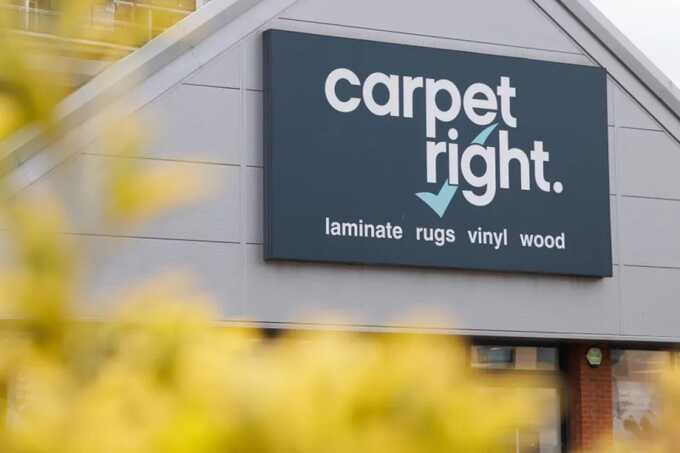Carpetright owed almost £350m when it collapsed into administration

Carpetright owed almost £350m when it collapsed into administration with the loss of more than 1,500 jobs before being rescued, it has been revealed.
The Essex-headquartered carpet and tiling retailer was acquired by rival Tapi in July in a move that saved the jobs of more than 300 people and 54 stores.
At the time of its collapse, Carpetright ran 273 stores across the UK, plus 19 concessions, and employed 1,898 people.
Now a new document filed with Companies House by administrator PwC has revealed exactly how much Carpetright owed to its creditors as well as the full story behind its collapse.
The filing has also revealed that Carpetright was sold to Tapi for £3.7m – a figure which was not disclosed when the deal was announced.
PwC’s document comes after 19 Carpetright stores were snapped up by Bensons for Beds earlier this month.
Why did Carpetright fail?
The administrator said that “following a sustained period of unprofitable trading”, Carpetright undertook a company voluntary arrangement (CVA) in 2018 which resulted in the closure of a number of stores.
In the same year it also sought to raise additional funds through the issue of new shares.
In 2020, Carpetright and its associated secured debt was acquired by Medior Holdings Limited and delisted from the London Stock Exchange. The CVA formally completed in October 2022.
In FY21, the company’s turnover totalled £257m while its earnings before interest, taxes, depreciation and amortisation (EBITDA) loss was £29m.
PwC said that the “company has faced continual trading challenges over recent years”, added that its turnover for FY23 was £227m and it suffered an EBITDA loss of £44m.
In the preceding year, Carpetright’s turnover was £257m and it also made an EBITDA loss of £30m.
PwC added: “This had been driven by changing consumer preferences and a drop in home improvement spending post pandemic, in addition to challenges in the operating model.”
In April 2024, Carpetright was the target of a cyber attack which left the business unable to trade online or in-store for just over a week.
PwC said that this added to the “already existing financial challenges faced but the business and negatively impacted the working capital position further”.
Insolvency was ‘inevitable’
Carpetright brought in PwC in May “following the worsening of the company’s liquidity position” to review its 13-week, short-term cash flow, comment on potential cash management opportunities and provide stakeholder management advice.
The firm was then engaged by the Nestware Group in June to test Carpetright’s turnaround plan, assess the potential debt financing and equity options to fund the delivery of the plan, assist with an accelerated M&A process if needed, provide restructuring advice and help with HMRC negotiations relating to a potential time to pay arrangement.
PwC said that an initial assessment concluded that it would not be possible to finance the working capital requirements using Carpetright’s assets along and access to the wider Nestware Group assets was deemed to be “strategically challenging” and the M&A process was stepped up in early July.
Carpetright had been in talks with HMRC over a time to pay arrangement over unpaid VAT and PAYE/NI but were not able to reach a deal.
As a result, the company was told that HMRC would take steps to wind it up if it was not paid.
PwC said that Carpetrght’s directors “resolved that insolvency was inevitable” and a notice of intention to appoint an administrator was filed on July 12.
How much did the retailer owe?
PwC said that Carpetright’s secured creditor will not get any of the £120m it is owed back.
The first ranking preferential creditors, which are mainly employees, are expected to receive all of their money but not for between six to nine months.
According to PwC’s document, they are owed around £2.2m.
HMRC, which is a secondary preferential creditor, is owed an estimated £9.2m.
It could receive up to 100 per cent of what it is owed, depending on the realisations achieved through the administration process, but will have to wait between six months to a year.
PwC said it is uncertain as to when unsecured creditors will receive any money but that any distribution is not expected to be more than 1p in the pound.
According to the document, unsecured creditors are owed more than £213.8m.
Among Carpetright’s unsecured creditors are Royal Mail, Facebook, Aviva, Slientnight, Indeed, the London Stock Exchange and Specsavers.
Read more similar news:
Comments:
comments powered by Disqus

































